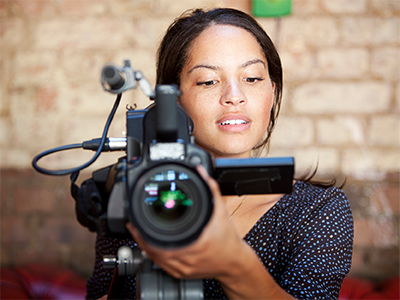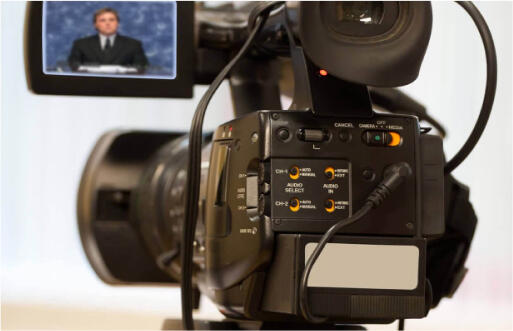Exploring the Function and Influence of Legal Videography in the Legal Area
Legal videography has become an essential tool in the legal field, revolutionizing the way evidence is presented and preserved. As we browse via the elaborate internet of regulations and ethical considerations bordering lawful videography, a more clear image arises of its possible to shape the future of the legal landscape.
Background of Legal Videography
The development of legal videography can be mapped back to the very early days of court room innovation combination. As courts began to recognize the worth of visual evidence discussion, using videography in legal proceedings gained grip. In the 1980s, the introduction of analog video electronic cameras noted a considerable turning point in the history of lawful videography. These cams allowed for the recording of depositions, witness testimonies, and court room procedures, offering an aesthetic document that complemented traditional created transcripts.
With the innovation of innovation, the change from analog to digital video clip tape-recording more reinvented the field of legal videography. Digital cameras used better recordings, easier modifying capabilities, and enhanced storage space options. This change not just improved the quality and accuracy of visual proof but additionally streamlined the discussion of complex info in court rooms.
Today, legal videography plays a crucial function in the lawful area, providing lawyers a powerful tool for providing proof, capturing statements, and creating compelling aesthetic stories to support their instances. The development of legal videography remains to shape the means legal professionals come close to litigation and campaigning for.
Advantages of Legal Videography

Furthermore, legal videography enables for the conservation of witness testament in a authentic and powerful manner. By catching the temperament and demeanor of witnesses during their testimonies, attorneys can better examine the reputation of their declarations and possibly reveal inconsistencies or falsehoods. This can be especially useful during cross-examination and in providing proof to support or refute essential disagreements in a case.
Furthermore, legal videography offers the benefit of developing an irreversible document that can be reviewed and examined any time. Attorneys can review video footage to recognize critical information, get ready for upcoming court procedures, or strengthen their strategies for test. This capacity to review and explore visual proof can give lawyers with a tactical advantage in constructing a durable case.
Techniques for Reliable Legal Videography
Integrating efficient techniques in legal videography is important for taking full advantage of the impact of visual proof and strengthening the reputation of witness testaments in legal proceedings. Additionally, making use of high-grade sound devices is vital to record audio precisely, guaranteeing that all verbal communication is captured clearly. Framing plays a vital duty in legal videography; it is vital to frame shots appropriately to focus on the pertinent aspects while minimizing distractions.
Lawful Videography in Courtroom Setups

In court room setups, legal videographers have to stick to strict standards to preserve the honesty of the legal procedure. They need to be discreet to stay clear of interrupting process while likewise being watchful in recording vital details. The video tape-recorded by lawful videographers functions as a valuable resource for attorneys, courts, and judges, offering an aesthetic document that can be referenced during situation prep work, charms, or testimonials.

Ethical Factors To Consider in Legal Videography
Ethics act as a fundamental structure assisting the technique of legal videography, ensuring stability and impartiality in capturing and maintaining legal procedures. Lawful videographers should adhere to rigorous honest criteria to maintain the credibility and dependability of their work. One crucial ethical consideration is acquiring notified authorization from all events entailed prior to recording any legal proceedings. This guarantees that individuals know being taped and have the possibility to share any type of worries or arguments.
Confidentiality is an additional extremely important honest consideration in useful site legal videography - LEGAL VIDEOGRAPHY. Videographers have to manage all taped footage with miraculous treatment to secure sensitive details and preserve the privacy civil liberties of those entailed in the legal procedure. Furthermore, maintaining neutrality and nonpartisanship during the recording procedure is necessary to avoid prejudice and make sure an accurate depiction of the events
Verdict
To conclude, legal videography has actually become an essential device in the legal area, providing an aesthetic record of occasions and enhancing the discussion of proof in courts. By recording statements, demonstrations, and scenes, lawful videographers play an important duty in guaranteeing a reasonable and transparent legal process. With ethical considerations and correct techniques, legal videography remains to have a substantial influence on the lawful career, shaping the method information is caught and offered in lawful procedures.
Lawful videography has actually become a crucial tool in the legal area, revolutionizing the way evidence is provided and maintained.Including effective techniques in lawful videography is important for maximizing the effect of visual evidence and boosting the reputation of witness testimonies in legal proceedings.Ethics serve as a foundational framework directing the method of legal videography, guaranteeing stability and impartiality in catching and protecting legal procedures.In final thought, legal videography has become a vital tool in the legal field, providing a visual document of occasions and boosting the discussion of evidence in courtrooms. With moral factors to consider and correct strategies, lawful videography continues to have a significant impact on the lawful career, shaping the way information is recorded and offered in legal proceedings.